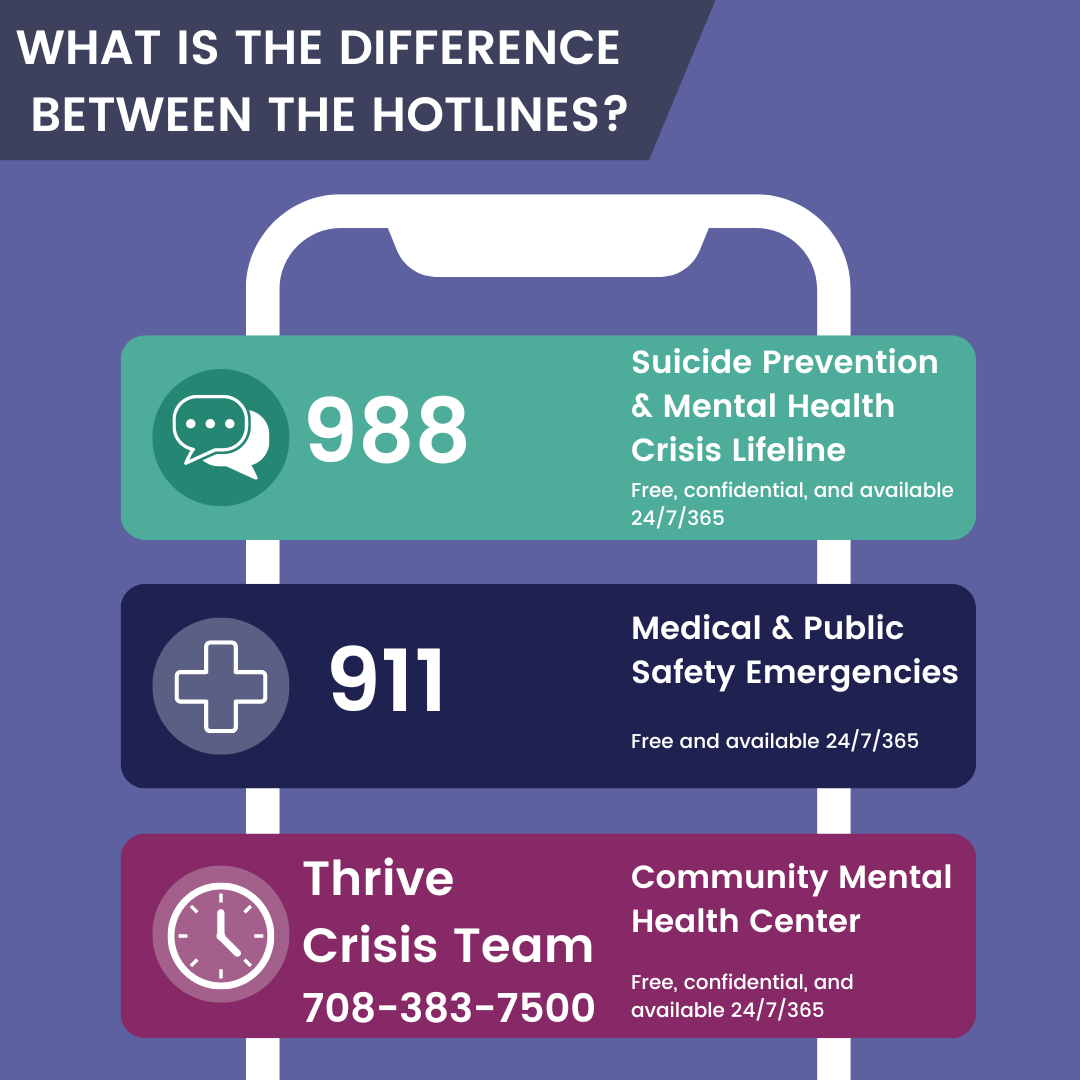988 — National Suicide and Crisis Lifeline…Launched in 2022, 988 is a nationwide three-digit dialing code designed to provide 24/7, confidential support to individuals experiencing mental health crises, suicidal thoughts or emotional distress. The benefit of 988 lies in its focus on mental health, substance use and suicide prevention. It connects callers to trained counselors who can provide immediate support, de-escalation techniques and resources to address underlying mental health concerns. Callers are connected to a counselor specifically trained to handle emotional and psychological distress. While 988 is effective for mental health crises, it’s important to note that it is not meant for life-threatening situations requiring immediate medical intervention or law enforcement involvement, when 911 should still be the primary contact.
911 — Emergency response for medical and safety crises…911 remains the go-to emergency number for life-threatening situations where immediate physical safety or medical intervention is required. The purpose of 911 is to dispatch emergency responders — including police and firefighter/paramedics — to provide immediate assistance in a wide range of urgent situations. Its scope is broader than mental health crises, focusing on any emergency that requires physical, on-site intervention.
Thrive Counseling Center Crisis Line…Thrive Counseling Center, located in Oak Park, offers its own free, local crisis line at 708.383.7500 extension 1. The local crisis line is open 24/7 for individuals in the community who are struggling with mental health challenges or emotional distress. Thrive’s crisis line offers a more personalized, long-term approach for individuals seeking support beyond an immediate crisis. While it operates similarly to 988, its localized nature makes it especially beneficial for those living Oak Park who want continuity of care. Individuals can walk in during business hours and talk with a crisis worker as well. Business hours are 9 a.m. to 8 p.m. Monday-Thursday and 9 a.m. to 5 p.m. on Friday.
Suicide Prevention: Triggers and Warning Signs
Recognizing the triggers and warning signs of suicide is key to effective prevention. Common triggers include major life changes, such as the loss of a loved one, financial hardship, or significant emotional or physical pain.
Warning Signs:
- Expressing feelings of hopelessness or having no reason to live.
- Talking about being a burden to others.
- Withdrawing from family, friends and activities.
- Increased use of alcohol or drugs.
- Sudden mood swings, from extreme sadness to calmness, indicating a potential decision to follow through on suicidal thoughts.
- Researching methods of suicide.
- Giving away prized possessions.











